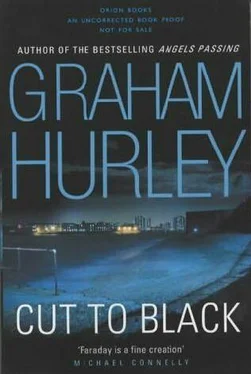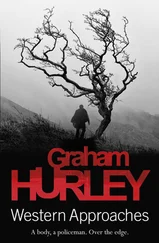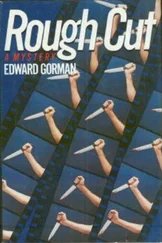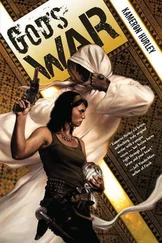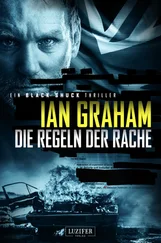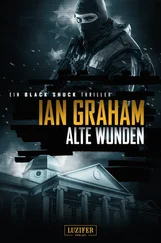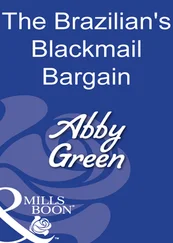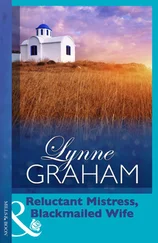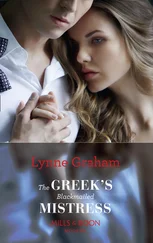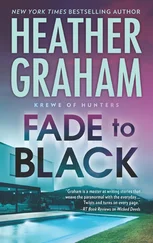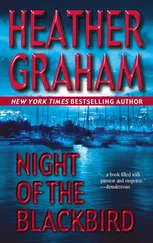Graham Hurley - Cut to Black
Здесь есть возможность читать онлайн «Graham Hurley - Cut to Black» весь текст электронной книги совершенно бесплатно (целиком полную версию без сокращений). В некоторых случаях можно слушать аудио, скачать через торрент в формате fb2 и присутствует краткое содержание. Жанр: Полицейский детектив, на английском языке. Описание произведения, (предисловие) а так же отзывы посетителей доступны на портале библиотеки ЛибКат.
- Название:Cut to Black
- Автор:
- Жанр:
- Год:неизвестен
- ISBN:нет данных
- Рейтинг книги:5 / 5. Голосов: 1
-
Избранное:Добавить в избранное
- Отзывы:
-
Ваша оценка:
- 100
- 1
- 2
- 3
- 4
- 5
Cut to Black: краткое содержание, описание и аннотация
Предлагаем к чтению аннотацию, описание, краткое содержание или предисловие (зависит от того, что написал сам автор книги «Cut to Black»). Если вы не нашли необходимую информацию о книге — напишите в комментариях, мы постараемся отыскать её.
Cut to Black — читать онлайн бесплатно полную книгу (весь текст) целиком
Ниже представлен текст книги, разбитый по страницам. Система сохранения места последней прочитанной страницы, позволяет с удобством читать онлайн бесплатно книгу «Cut to Black», без необходимости каждый раз заново искать на чём Вы остановились. Поставьте закладку, и сможете в любой момент перейти на страницу, на которой закончили чтение.
Интервал:
Закладка:
"Contemporary reference," Harry explained, 'lifted straight from dispatches. St-Privat was curtains for the French. The Krauts were in Paris within weeks."
Winter, surprised, admitted his ignorance. As far as he was aware, the Germans had stayed put until 1914.
"Wrong, mate. 1870 was the dress rehearsal. The French got a seeing-to, and forty-odd years later the pickle heads were on the march again. Trooper Press was lucky to be on the right side of the Channel.
His kind of attitude, he'd have been a sitting duck for the Prussians.
Times change, Paul." He gestured towards a nearby World War One howitzer. "The technology moved on and we all dug in. You want to have a look at the rest of the fort?" He indicated a group of guests mustering by the door. "Only I could do with a couple of minutes with my mates before we find a pub."
With some reluctance, Winter agreed to join the tour. A couple of dozen members of the audience trooped after a guide, crisscrossing the fort, filing through narrow subterranean tunnels, pausing to step into a magazine while the guide explained the importance of guarding against accidental explosions. A single stray spark, he said, and the whole place could go up. With tons and tons of gunpowder in these roomy, brick-lined vaults, there'd be bits of Trooper Press all over the city.
Thoughtful now, Winter followed the tour upwards until they emerged into the cold night air. Minutes later, they paused on the ramparts.
The guide wanted to know whether anyone had any questions.
Winter raised his hand. He could see the bulky shapes of cannon nearby.
"Why do all these guns point north?" he enquired.
"Because that's where the threat might come from. You have to guard against landings further up the coast. A couple of days' march and the city's there for the taking." The guide smiled, tapping his nose.
"That's the funny thing about Pompey. It's threats from the mainland we have to worry about."
Winter was staring into the windy darkness, at last beginning to understand.
"Too fucking right," he murmured.
Faraday sat at the back of the cathedral, letting the bare, unaccompanied plainchant wash over him. Sung in Estonian, he hadn't got a clue about the liturgical significance of what he was hearing, whether the world was heading for heaven or hell, but just now it didn't seem to matter. Better, he thought grimly, to keep his options wide open and discount absolutely nothing.
Earlier, in conversation with Willard, he'd drawn a ring around the five names that were privy to Tumbril's inner secret. Four of them were coppers Willard, Wallace, McNaughton and Faraday himself and it was an index of just how sloppy he'd become that his attention had automatically been drawn to the outsider.
Gisela Mendel, it was true, had every reason for cementing a relationship with Mackenzie. The latter's eagerness to buy the fort was, Faraday assumed, genuine, and if Gisela had realised that Wallace was simply a plant, there to entrap her one and only buyer, then she'd have been sorely tempted to mark Mackenzie's card. Willard, on the other hand, would have been mad not to have anticipated and countered — this development. So what, exactly, was the real nature of his relationship with the woman? Was he as dotty about her as Faraday's first glimpse of them together had suggested? Had Willard, indeed, been the cue for her marriage to collapse?
This line of inquiry, Faraday knew, led to some very deep waters indeed. At best, Willard was guilty of letting Gisela get too close to the bid to entrap Mackenzie. That would argue for naivety on his part and calculating self-interest on hers. At worst, unthinkably, Willard might himself be tied into Mackenzie through Gisela Mendel. Mackenzie would presumably pay a sizeable premium not only to secure the fort but also buy his own escape from the attentions of Operation Tumbril. What sweeter bung than, say, 100,000 into the back pocket of his chief tormentor?
Faraday smiled at the thought, easing his position on the hard cathedral seating, sensing already that this piece of investigative speculation was a non-starter. Willard was the all-time control freak.
He couldn't make a cup of tea without taking sole charge of the kitchen. Accept money from the likes of Mackenzie, and he'd hand the man a loaded gun. Why would Willard surrender the rest of his life to the man he'd sworn to put behind bars?
Dismissing the thought, Faraday returned to yesterday's crucial meet at the Solent Palace Hotel. At Willard's insistence, he'd listened again to the recording, concentrating on the moment when the conversation across the table in the window had so suddenly taken a turn for the worse. Buried in what followed could be a clue, a tiny smudge of chalk on a tree, something that might flag the investigative path forward.
He'd listened to the recording three times in all, hearing the anger in Mackenzie's voice, the resentment bred by his knowledge of the trap closing around him, his belief all too real that his hands-on days of wheeling and dealing in cocaine were history and that he deserved a little credit for the transformation he'd wrought in his own and Pompey's fortunes. It was, in the end, a question of status. The butterfly had emerged from the chrysalis, a maggot no longer. King of the City, indeed.
Faraday felt a tiny jolt of recognition. He straightened on the chair, forcing himself back through his memory of the recording, trying to identify that one phrase that Mackenzie had let slip. It was there. He knew it was. He could sense its rhythm in his head, the tell-tale metre, the ripple of incandescent anger that gave Mackenzie away.
Something chippy. Something about his roots. Something about Copnor.
Then, as the final passage of plainsong began to fade, Faraday had it.
Punchy little mush front the backstreets of Copnor. That's what he'd said.
As the audience began to applaud and the singers took a bow, Faraday sat back, astonished at the implications of his discovery. Punchy little mush from the backstreets of Copnor. Just so.
Moments later came the lightest of taps on his shoulder. Faraday twisted round in his chair. Nigel Phillimore was standing behind him.
There was to be a modest reception for the Estonians in the Sally Port Hotel tomorrow evening. The choir was off back to Tallinn and the cathedral was saying thank you. If Faraday wanted to be part of that farewell, he was more than welcome to come along. Seven o'clock would be fine.
Faraday gazed up at him, aware that the details had barely registered.
"Of course." He smiled. "I'll do my very best."
A couple of miles east of Fort Nelson, commanding an even better view of the city, was a hilltop pub called The Churchillian. Winter and Harry Wayte had driven there in convoy. Now they sat together at a table by the window, nearly a pint down, still discussing Pompey's role in the defence of the realm.
"Blood and treasure," Wayte grunted. "When the trumpets sounded and the drums beat, you couldn't find a richer city in the kingdom. The minute the war was over, they were all back on the turnpike, riding hard for London. That's why Pompey blokes grab it while they can.
That's why the kids are off their heads most of the time. It's in the genes, mate." He nodded. "Blood and treasure."
"Whose blood?"
"Ours."
"And the treasure?"
"The King's." Wayte raised his glass. "Here's to September."
September was the month Wayte was due to retire. Listening to him now, watching him amongst his civvy mates at Fort Nelson, Winter felt the faintest stirrings of envy. Speaking for himself, Winter was happy to admit that he dreaded the prospect of leaving the job. He wouldn't have a clue what to do with the empty days that yawned before him.
Harry, on the other hand, couldn't wait for it to happen.
Читать дальшеИнтервал:
Закладка:
Похожие книги на «Cut to Black»
Представляем Вашему вниманию похожие книги на «Cut to Black» списком для выбора. Мы отобрали схожую по названию и смыслу литературу в надежде предоставить читателям больше вариантов отыскать новые, интересные, ещё непрочитанные произведения.
Обсуждение, отзывы о книге «Cut to Black» и просто собственные мнения читателей. Оставьте ваши комментарии, напишите, что Вы думаете о произведении, его смысле или главных героях. Укажите что конкретно понравилось, а что нет, и почему Вы так считаете.
